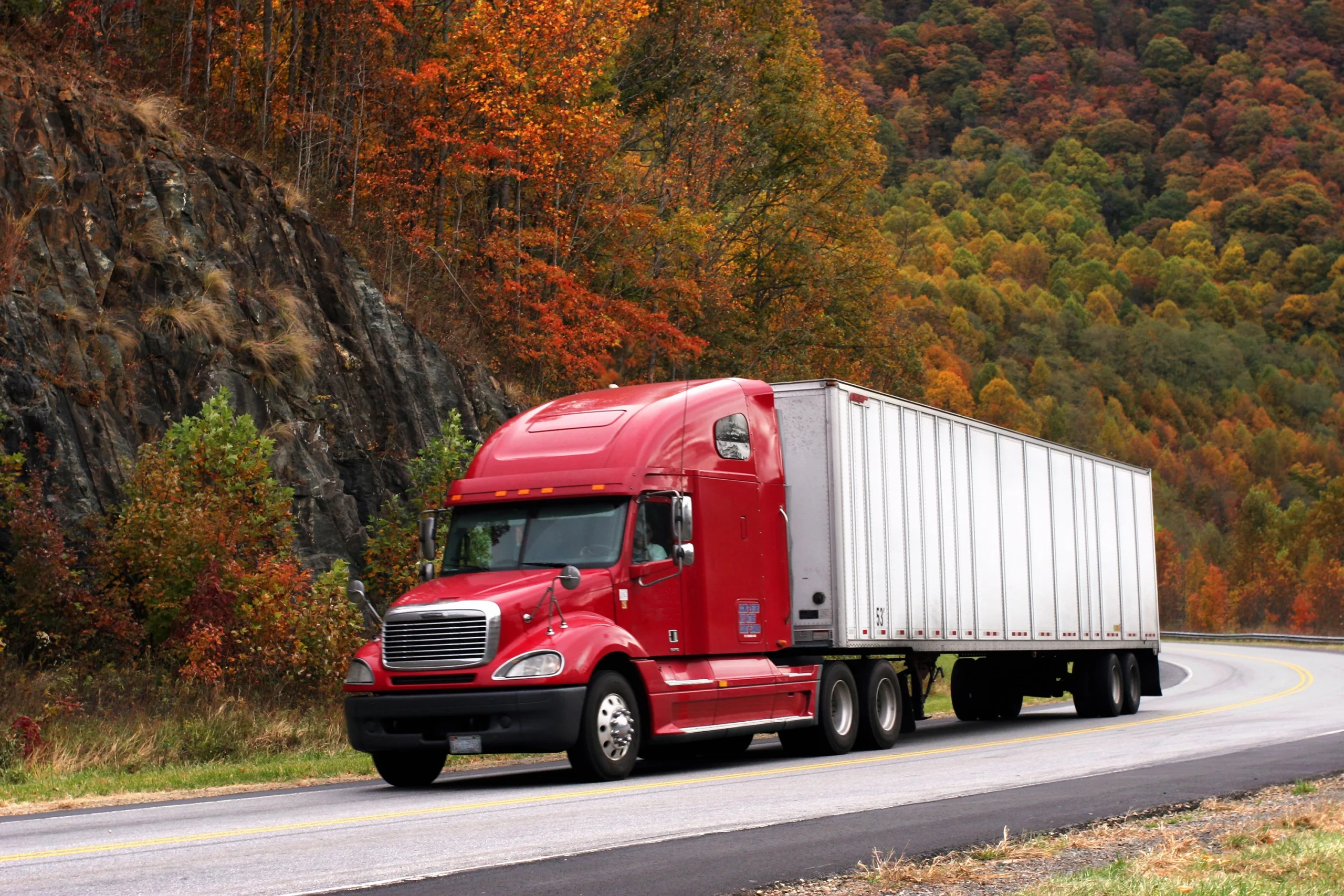TRUCKING ACCIDENTS
Rollover Truck Accident in Colorado Springs
Colorado Springs Rollover Truck Accident Law Firm
Big trucks can cause serious injuries in an accident due to their massive size and heavy weight. A rollover accident involving a large truck, on the other hand, can be even more hazardous. Drivers of passenger cars in Colorado Springs who are involved in large truck rollover accidents may sustain serious injuries, which can have life-altering consequences in many cases.
Unfortunately, big truck rollovers happen in Colorado Springs, and they can happen for various reasons, both within the driver’s control and beyond his or her control.
Types of Truck Accidents
Strong Winds
High winds are common in Colorado Springs, especially on hot summer days, due to high-pressure air coming in from California. The average wind speed in Colorado Springs is 9.6 miles per hour. However, gusts of significantly greater speeds are possible, including speeds strong enough to shake large cars.
On a windy day, observe a large truck. In the wind, you might notice the trailer shifting. When they notice the shifting, some people become nervous, and rightfully so. In some cases, strong winds can completely topple a truck.
In other cases, strong winds may provide the extra push needed to tip a large truck over once it has begun to tip. Truck drivers in Colorado Springs may need to slow down and take turns more slowly on windy days to avoid a serious accident.
Free Consultation
NO FEE UNLESS WE WIN
Unbalanced loads
In and out of Colorado Springs , big trucks transport many heavy loads. Manufacturing plants in the Colorado Springs area rely on large trucks to transport their products across the country and into the hands of those who need them. Colorado Springs has trucks that transport cargo from boats that need to be transported across the country because of its proximity to the Gulf of Mexico.
Ports, warehouses, and manufacturing plants all have employees who have a lot of experience loading trucks because they need to move things around regularly. However, that does not guarantee that those trucks will be loaded safely every time. Trucks may occasionally have unbalanced loads, posing a serious risk to the truck driver and others on the road.
Trucks are designed to sit high on the road, making them more prone to tipping. When there’s an unbalanced load in the back, especially a top-heavy one, the truck’s chances of tipping increase even more; shifting cargo in the back of the trailer can sometimes be dangerous enough to cause the truck to overturn.
Flatbed trucks, which frequently transport cargo that does not fit in a standard truck’s trailer, maybe even riskier. Flatbeds are frequently loaded with awkward, unbalanced cargo. Heavy equipment, for example, may occasionally dangle from the trailer’s sides. While flatbed loads must adhere to strict guidelines and be properly secured on the back of the truck, unbalanced loads can increase the likelihood of a truck tipping over.
A lot of people.
Despite the city’s recent growth in public transportation, residents of Colorado Springs still prefer to drive. During rush hour, traffic is still heavy throughout the area, and many people are having trouble getting to their destinations.
For big truck drivers, heavy traffic poses several risks. Heavy traffic not only increases the likelihood of a collision but also increases the likelihood of a truck driver rolling over in an accident. If truck drivers over-steer into a turn or feel the trailer beginning to wobble in heavy traffic, they may have less room to recover.
In addition, heavy traffic can make safe maneuvering difficult. Many truck drivers, for example, prefer to make very wide right turns to have better visibility while attempting to complete the turn—and to reduce the risk of the car tipping. However, if there is a lot of traffic, the driver may not make those wider turns. Sharp maneuvers might put you in danger of a rollover.
Error 4: Driver
Truck drivers all over the country, including those in Colorado Springs , put in long hours behind the wheel. Before obtaining the Class C driver’s license required to safely operate a large truck, they must go through more training than the average passenger car driver. They frequently become accustomed to operating a car that most people would find difficult to operate.
Unfortunately, driving for long periods can raise the risk of certain driver errors.
Speeding
Any collision, especially rollover collisions, can be more dangerous by driving too fast. Out on the road, speeding amplifies everything. High-speed drivers must react to possible risks more quickly. If a large truck begins to tip at a fast rate, it is much more likely to tip over.
Despite being well aware of the dangers of speeding, many large truck drivers continue to race through the streets of Colorado Springs, especially if they are fortunate enough to travel without accident. They believe that speeding will allow them to make up time lost while stuck in a Colorado Springs traffic jam or will allow them to arrive at their destinations faster.
Because the Federal Motor Carrier Safety Administration limits the number of hours truck drivers may spend behind the wheel each day, some truck drivers may opt to drive faster to get to their desired destinations before stopping for the night.
Truck drivers may get annoyed by the reduced speeds they must often maintain when traveling through large towns such as Colorado Springs. Therefore they may accelerate when traffic allows.
Then something goes wrong. The car begins to sway. The truck driver cannot halt the situation by braking or steering away quickly enough. Then disaster strikes in the form of a rollover accident.
Distraction
At some point in time, distracted drivers cause difficulties on practically every road in the United States. While driving in Colorado, it is illegal to transmit or receive electronic communication (text, email, etc.). Drivers with learner’s permits who are still within their first six months of driving experience cannot use mobile phones in school zones.
Some drivers, however, may opt to use these devices.
Furthermore, mobile phone usage is not the sole source of distraction while driving, particularly for truck drivers. Many truckers become more at ease behind the wheel as time goes on. They may believe that distractions that cause serious problems for other drivers do not present them with nearly the same difficulty level. After all, they’re confident in the truck, the route, and driving abilities.
Unfortunately, even a brief lapse in concentration can pose a serious risk. The driver takes a brief break to check a device, fiddle with the car’s controls, or even unwrap and attempt to eat a burger.
As mustard falls onto his lap, he could frown, frustrated that he now has to wonder about looking for a napkin. He may even need to reprogram his GPS or double-check his coordinates to ensure that he has programmed it correctly in the first place.
After that, he takes a sharp right. After realizing he’d missed that sharp turn, he might oversteer or overcorrect. He has a chance of missing his turn on the highway. He suddenly feels the trailer swaying behind him, and he could be involved in a serious rollover collision in a matter of seconds.
Ignoring Signals and Signs in the Road
Posted traffic signs, particularly in construction zones, assist large truck drivers and passenger car drivers in safely navigate traffic. Ignoring those signs, whether it’s speeding through a red light or attempting to drive through construction the wrong way, can greatly increase the risk of a collision.
The big truck driver may have to steer more sharply to avoid a collision, potentially tipping the trailer or the truck itself.
Climate Change
Compared to the rest of the country, the weather in Colorado Springs is usually quite pleasant. There are only about 90 days of precipitation per year in the Colorado Springs area, ideal for truck drivers. Colorado Springs truck drivers, on the other hand, may face additional and even unexpected challenges on very rainy days.
Colorado Springs experienced several days of heavy snow in one recent year due to recent changes in weather patterns. Because the city receives so little snow in general, it lacks the infrastructure that northern truck drivers expect, such as snowplows, salt, and convenient street maintenance, which can help reduce the risk of icy roads.
Rollover accidents involving large trucks are much more likely in bad weather. Big trucks may struggle to keep their grip on the road on slick surfaces. Especially in areas with sharp drop-offs, the tires may slip off the pavement. Drivers may struggle to keep their cars on the road as they pass through that area, resulting in serious accidents, including rollover accidents.
Debris on the Road
Big trucks, in some cases, can drive over road hazards that other cars would pass by. Big trucks have much bigger tires and a lot more mass, and they don’t have to worry about minor road issues.
On the other hand, road debris can be a major hazard in some cases.
As Colorado Springs grows in population, so does the amount of road debris. Garbage trucks, dump trucks, and flatbeds all have items that fall off the back of the truck. Other items may end up on the road due to drivers throwing things out the window or dumping them along the side of the road. Dangerous debris has a high potential for causing serious accidents.
Tire blowouts can occur due to debris, which can unbalance a large truck enough to cause a rollover accident. Big truck tires can blow out with a lot of force, posing a threat to everything in their path.
Alternatively, debris may pull the car off course just long enough for the trailer to begin to tip—and once the trailer begins to tip, the rest of the truck will quickly follow. Big truck drivers may also try to maneuver around debris, only to find that their maneuver took them too close to the side of the road or a sharp drop-off, potentially resulting in a rollover accident.
Driver Training Is Inadequate
As they move through the area, experienced truck drivers may successfully gauge turns, avoid rollover accidents, and reduce the risk of serious collisions. On the other hand, inexperienced truck drivers may have no idea what it’s like when a trailer begins to rock dangerously or how to recover the truck once it begins to tip.
Unfortunately, many drivers do not receive adequate training before, or even after, taking their first loads out on their own. Beyond the fundamentals, some drivers learn everything they know on the job. Because many industries, including the trucking industry, are struggling to find enough workers.
Many trucking companies choose to send out drivers without providing them with any additional training than what is required to obtain their CDL. As a result, drivers lack the necessary experience and skill to avoid a rollover.
Have you been in a big truck rollover accident in Colorado Springs? A truck accident lawyer in Colorado Springs can explain your legal options and assist you with your claim.

FREE CASE REVIEW
We are standing by ready, willing, and able to help you. You can schedule a free consultation here on our website, or give us a call and talk to us. Whatever you prefer, we will accomodate you!








